Are you an animal lover and like being surrounded by these warm and fluffy friends of humankind? Building a career committed to caring for your furry friends sounds exciting, right? Do you want to know how to get into animal care apprenticeship? Animal care is a satisfying profession to work in, and it’s a great place to start your career.
According to a survey conducted by the PFMA in 2017, there are 54 million pets in the UK. It does not even include farm animals. When all of this is taken into account, many animals could use your help. The fact that the animal care industry is in high demand is no surprise! We all love animals. Some of us are deeply passionate about animals’ well-being and don’t want to see them suffer! So, let’s find out how to get into animal care apprenticeship.
Table of Contents
Why Should You Choose a Career in Animal Care?
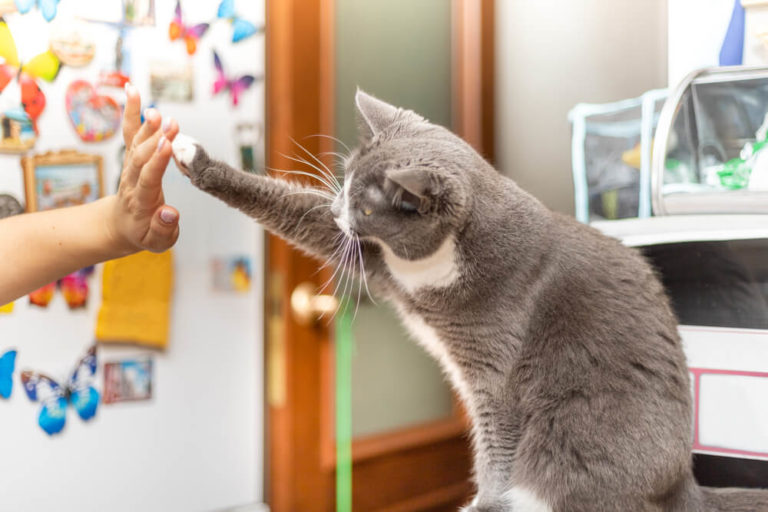
Before asking how to get into animal care apprenticeship, find out if you have what it takes. You need to have a passion for animals and a desire to work for them. There are many financial advantages to having a career in animal care.
Annual spending on pets and associated goods is on the rise. According to the Consumer Goods & FMCG survey, 6.5 billion British pounds were spent in 2019 for pets. Pet-related spending is further projected to grow in the coming years. The expansion of the animal care industry will occur side by side.
The employment of Veterinarians and RSPCA officials are projected to rise significantly. There is a growing need for animal sanctuary staff. Besides, we need more wildlife specialists and laboratory animal caretakers. As an animal care apprentice, you will have the opportunity to work in a fast-paced, growth-oriented environment. You can connect with customers and help educate a lot of clients in this profession. You can enjoy the thrill of working alongside a group of animal-loving employees.
How To Get Into Animal Care Apprenticeship: Type of Jobs in Animal Care Industry
If you are wondering how to get into an animal care apprenticeship, look no further! The industry of animal care is growing. There is a wide variety of field where you can get an apprenticeship.
Are you interested in animal behaviour & psychology? Do you want to take care of some sweet and fuzzy animals? There are various ways to put your skills to use. There are many exciting opportunities available. For instance, you could serve as a kennel or cattery trainer. You can become a fundraising manager for an animal welfare organisation. Becoming a zookeeper or becoming a veterinarian are also viable options. Veterinarian and veterinary nurse ensure animals receive the best treatment. There are also several indirect positions available in animal-related organisations. For instance, publicity, promotional, and public education work.
Veterinary Nurse

Non-farm animals are cared for by veterinary assistants. Veterinary assistants work in labs, animal hospitals, and clinics. They provide routine treatment for animals under the supervision of veterinarians. Besides, they can work under the supervision of animal scientists or veterinary technologists.
Learn more about our course, Pawsistant: Ultimate Veterinary Assistant Guide.
As a veterinary nurse, you can also work in animal charities or zoos. Providing emergency and specialised healthcare designed for animals will be your primary responsibility.
You can never predict which animals will come through the door or what kind of treatment they’ll need. Hence, a day in your life as a Veterinary Nurse will be full of variety. You might be caring for a variety of our fuzzy friends. It could be a sick Corgi that ate anything they shouldn’t. You could also need to treat a stranded, wounded bird on the side of the road.
Veterinary nurses monitor animals and ensure they are as relaxed as possible. They administer medications such as vaccinations and tablets to the animals. Furthermore, you have to groom and walk animals as required.
You will also have to clean and disinfect cages and kennels. Always keep the examination and operating rooms sanitised. On occasions, you have to help veterinarians with surgery and other procedure. As a veterinary assistant, you will work in clinics and animal hospitals. Working in laboratories or research facilities are also well-paid options.
Your work may be physically or emotionally taxing. You may witness animal cruelty. Sometimes, you may have to assist in the euthanasia of sick, wounded, or unwanted animals. In the United Kingdom, the average annual wage for a veterinary assistant is £17,688.
Need a jump start to your career as a veterinarian assistant? Check out this Level-3 Diploma Course. It is designed to equip you with proper training to understand animal behaviour.
ZooKeeper
Are you the wildest one among your group of friends? A job as a zookeeper might be the right one for you then!
As a Zookeeper, you will be in charge of looking after animals’ care in public areas. For instance, zoos, safari or wildlife parks, aquariums, and other animal attractions. From lions and tigers to dolphins and penguins, these creatures could be everything. You will have to provide animals with a healthy environment. The environment needs to be stimulating to closely resemble how they live in the wild. Zookeepers often keep an eye out for signs of sickness, injury, or pregnancy. You need to feed and prescribe medicine regularly if possible. You will additionally be required to maintain records and promote knowledge of conservation in the community.
There are no minimum requirements to being a zookeeper. After getting your high school diploma, you could gain hands-on experience. You can do an apprenticeship for 6-12 months. Besides, you can ask to volunteer at the nearest zoo for a few months to get the hang of it. Some employers might require you to have GCSE or A-levels with subjects like Maths & English being a must. The average annual salary is around £14,000 if you’re starting out fresh. However, managerial roles could get you as high as £25,000 a year on average.
RSPCA Inspector
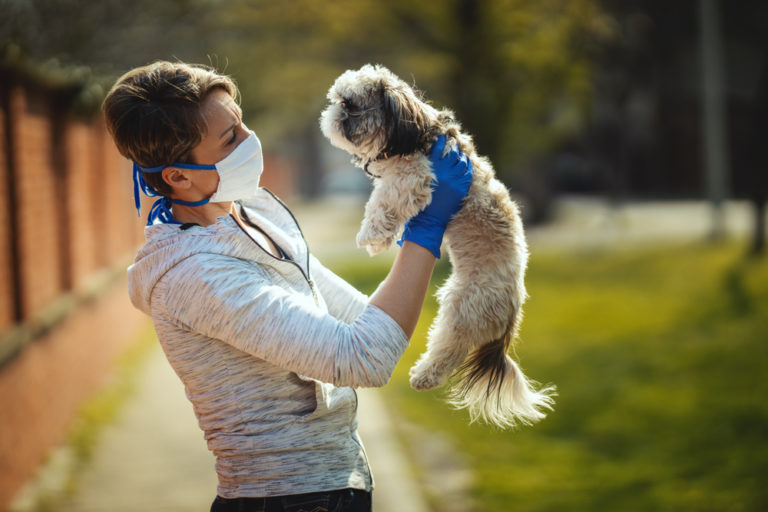
Are you an anti-animal cruelty activist and would like to make a difference? Then becoming a RSPCA officer might be the right path for you!
RSPCA Inspectors are on the front lines of animal cruelty prevention. They transform animals’ lives and educate the people who care about them. You may be saving a dog from filthy living conditions or supporting a horse trapped in a wire fence.
This job can be very satisfying. Because you actively contribute to an animal’s wellbeing every day. However, it can also be physically and emotionally demanding. You may be required to lift heavy equipment and animals on occasion. Besides, you may be required to work near water. So, you must be a good swimmer and reasonably fit.
You can also face aggressive, hostile, or emotionally distressing situations. So, be ready to deal with anything that comes your way! As an apprentice or trainee RSPCA inspector, you are looking at an annual average salary of £19,000. However, it can go as high as £28,000 to £30,000. The more you learn and more experienced you become, the higher you earn.
There are no prior requirements to become an RSPCA inspector. However, specific certifications or accreditations in your resume might get your employer’s interest peaked. Check out this interactive online Animal Care course with CPD qualification. You can learn all about animals’ nutritional needs and interpret their behavioural pattern. The course will also go into the depth of knowledge about how to treat exotic animals. For instance, reptiles, chimpanzee and elephants. Furthermore, you will get training on the physical care of aquatic life.
Wildlife Conservation Officer

Do you enjoy being outside? Do you want to preserve beautiful natural areas through public awareness, conservation work, and scientific monitoring? Then, you should consider becoming a Nature Conservation Officer. They usually work for local governments, wildlife trusts, or government agencies. Their fundamental duty is to help wildlife thrive through various approaches. Their duties include monitoring biodiversity and community conservation awareness. Besides, they are responsible for the preparation of conservation plans and reports.
There are various career options to explore in wildlife conservation. You can take the route of a conventional four-year degree in a subject related to wildlife. For instance, biological sciences, environmental science, etc. Besides, you can become an apprentice at a charity sanctuary. You can work as a trainee apprentice in any state-owned wildlife centres.
As an apprentice, you will receive practical instructions in natural history and diets. You will learn enclosure configurations and care procedures of many of the most common native species. For instance, small mammals, songbirds, fawns, waterfowl, and turtles. As your knowledge and observational skills expand, you will care for more critical and vulnerable animals. Additionally, you have to provide first aid treatment to injured animals until the veterinarian can assess them.
The starting salary range is around £18,000 to £24,000 for a wildlife conservation officer. However, a few years of work experience could earn you a managerial position. A managerial position could earn you a salary package of £30,000 and above.
Dog Groomer
Ever imagined yourself working with four-legged friends? Then, dog grooming is an excellent career choice for you. Dog grooming can be a rewarding and varied occupation. However, it can also be physically demanding. Because you’ll be dealing with dogs of all sizes, coat styles, and temperaments. Remember, not all dogs love being washed and fluffed. So, you have to be cautious and be gentle with our fuzzy friends.
Are you looking for a new challenge? Groomers for dogs are similar to hairdressers or beauty therapists for humans. You will use a full range of grooming services for dogs. For instance, washing, drying, shaving, and trimming. You will be clipping nails, as well as clean their ear and teeth.
Furthermore, you have to make them look their best and smell amazing. While grooming a dog, you will generally meet the breed’s grooming requirements. Besides, you can groom the dog based on the owner’s preference for a particular look or style.
Being a dog groomer, you can work as a team in a salon. Besides, you can provide self-employed services to the pet owners at home. If you like being a lone wolf, then play solo! There are plenty of salons that will take on apprentices. So, you don’t need any specific qualifications to start grooming dogs.
However, taking a Level 3 animal care & management course will teach you all the basics you need. You can give any dog a perfect look with the utmost respect after completing the course. It can be beneficial to learn a few different skills before applying for your first job. It will improve your morale as well.
Your average annual salary as a dog groomer will be between £16,000 to £20,000. However, the number may vary if you decide to be self-employed.
How to get an Animal Care Apprenticeship?
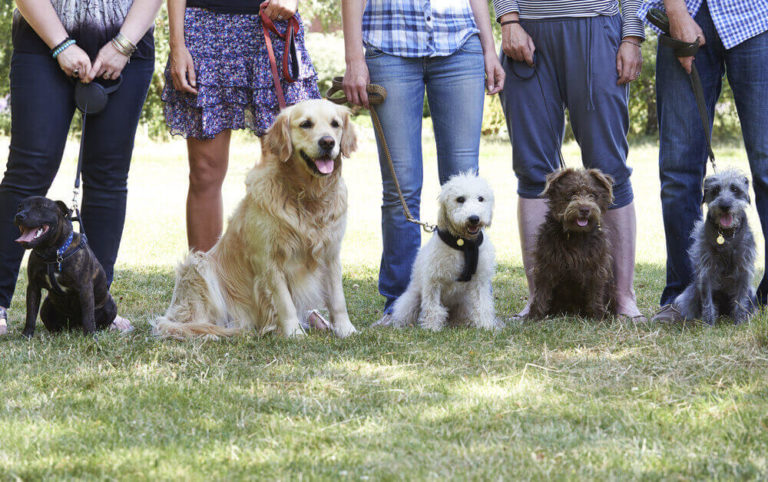
We have discussed a few of many varied possible job prospects. Now, let us venture into how you can secure your position in the animal care industry?
Before you dip your toe in the water, be sure and interested in having a career in this ever-growing field. Because you need to constantly learn and evolve to show your passion for protecting the balls of fur! You need to be able to do inductive reasoning. Besides, you need to be sensitive to social perceptiveness & problems. Having a service-oriented personality, manual dexterity, and muscle strength are must in this industry.
Educational Requirements (GCSE/ A-levels)
Apprenticeships are a hands-on approach to learning. Employers who realise it can understand that certain people don’t do well on exams. Most people excel with a more “hands-on” approach. However, a few employers still want successful applicants to apply to them. So, you need to have at least 5 A*-C in GCSEs or A-levels. It will increase your chances of getting a job.
Do you have a clear idea of which apprenticeship position you want in? In that case, you can actively and efficiently take and learn subjects relevant to that. Do you want to be a wildlife conservation officer? Then having good grades in Biology & Chemistry will give you an edge.
Following your GCSEs or A-levels, you can almost certainly begin an apprenticeship at Level2. You can be an apprentice at even higher levels if you have excellent grades. Having relevant volunteering experience in the industry can help too.
Volunteer to Gain Experience
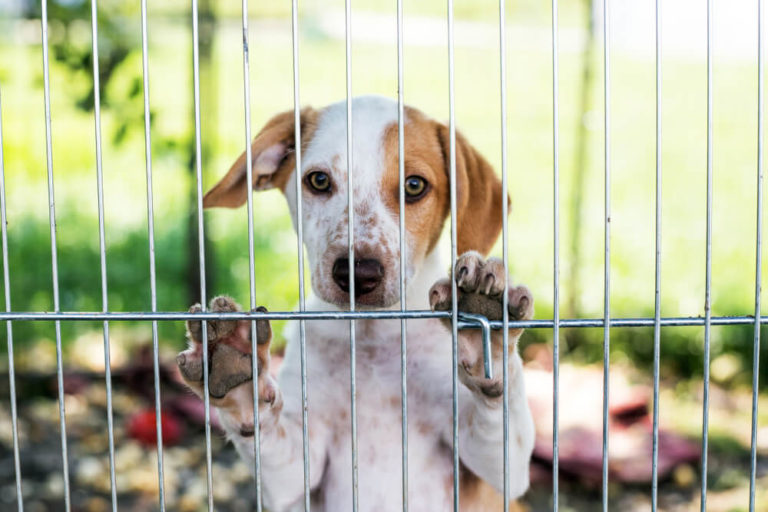
Are you trying to get into the field and gain experience while still in school? Many animal welfare organisations accept volunteers year-round. Look for opportunities on the websites of the organisations you care about. You can volunteer at one of the National Animal Welfare Trust’s animal rehoming centres. You can work with cats, dogs, and other small animals during a two-week placement. It will help you prepare for a career as a veterinarian. Students can also volunteer for one week at the British Wildlife Centre in Surrey.
The Animal Careers Program (ACP) is an employer-led training and development program. It is an employability program established by top animal care industry experts. Before beginning work experience, you can enrol in the ACP. ACP provides comprehensive pre-employment training.
You can also volunteer at animal charities in the UK to gain valuable knowledge and experience. Some noteworthy organisations are Blue Cross, RSPCA, PDSA, Dogs Trust, Cats Protection etc. Volunteering experience only tells your employer that you are a dedicated and growth-oriented person.
Certification for Animal Care Apprenticeship
You might want to take a class to learn the skills and experience needed for this type of work. Certification can help build your career! One education offers full-time Level 2 Diploma in Animal Care and Level 3 Diploma in Animal Management courses. Enrol in these courses to find out how to get into an animal care apprenticeship. Work-based certificates are available. You can either work or volunteer in a suitable animal care setting such as boarding kennels, cattery, animal charity, aquarium, wildlife centres, pet sitter etc. Furthermore, you can become a certified veterinarian technician or a nurse.
Job Hunting
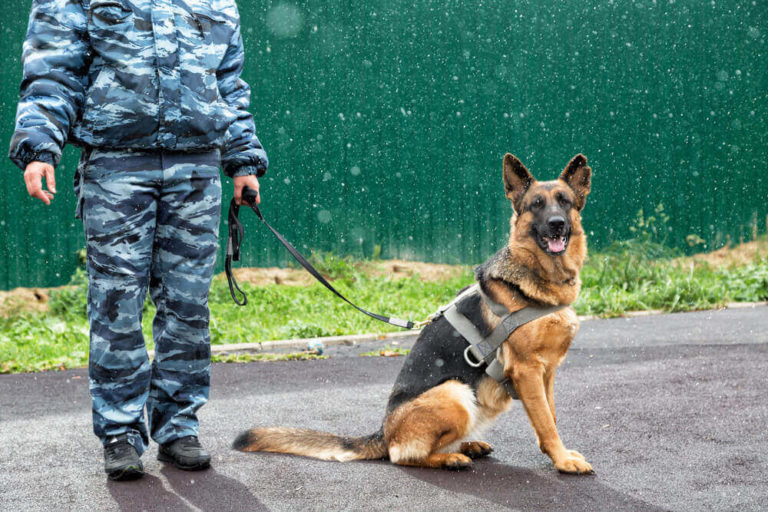
After having sufficient knowledge and certification under the belt, it is time to throw your hat in the ring! You need to look up jobs consistently every day to find the one that’s right for you.
Surf Job Posting Websites
It would be best if you always kept a lookout on your local council’s websites. The websites tend to update about new apprenticeships and job every week. Simultaneously, the application process might be fiercely competitive. The employer will fairly judge your career profile.
You should also set up an account on National Apprenticeship Service. It is a government operation website where apprenticeships are posted from all over England. To see what’s available, enter your postcode and search by city.
Furthermore, you can also pick the type of work you want to do. Set up a profile on other job websites as well. LinkedIn is a great place to connect with experts and find opportunities.
Explore The Field
Veterinary nurse and veterinary surgeon are two common animal professions that include specifically caring for and treating animals. There are various zoos and safari parks in the UK. For instance, Paignton Zoo, Edinburgh Zoo, and Knowsley Safari Park and West Midlands Safari Park. You might find work there while ensuring the welfare of animals.
Joining the Army, processing animals in quarantine at airports, and working in pet shops are also examples of animal-related occupations. Most animal welfare organisations have work postings on their blogs. There are some specialised job boards as well. For instance, Animal Jobs Direct, Working for APHA, Army Medical Service Veterinary Technician, etc.
How To Get Into Animal Care Apprenticeship?
There are various other animal apprenticeship choices. You can work as a dog groomer for Pets At Home for 12-13 months. Apprenticeships at Levels 2 to 7 are available. Look into pet supplies’ retailer’s support office and distribution operations. You can specialise in a variety of areas. For instance, customer care, finance, human resources, warehousing, supply chain, or marketing. The Army Medical Service also offers the opportunity to earn a Level 2 or 3 apprenticeships. You can become a Dog Handler after the completion of the apprenticeship.
Send in your resume and cover letter to the companies you want to work for alongside looking for apprenticeships. That way, when a position opens up and your resume is on the deck of a recruiter, you are in luck! Always provide a well written and relevant resume. The resume should have details of your previous pet handling & volunteering experience.
Enlist professional development events you enjoyed and learned a lot from. Job seekers need to demonstrate appropriate training on their resume. It increases the chances of getting an interview and landing the apprenticeship.
Few Skills You’ll Learn and Know during Apprenticeship
Now that you know how to get into an animal care apprenticeship, what do you want to be? Is it a veterinarian, animal behaviourist or animal welfare officer? Perhaps, you want to be a wildlife conservation officer? Pet sitter or animal groomer are also some wonderful choices. Regardless of the different career field, there are some basic skills that you will need to be acquainted with. Such as:
- You have to abide by UK Animal Related Legislation.
- You need to be aware of current health and safety legislation. Maintaining the occupational policies can help you work effectively. Your working environment will be safe and healthy.
- In animal accommodation/enclosures, you should be able to identify potential risks. Besides, you have to report the risks and safety breaches.
- You will learn how to clean and maintain the environment and the equipment of animals.
- Follow hygiene, bio-safety and animal infection controlling procedures when needed. You need to follow the guidelines of quarantine and isolation.
- Maintain, update and refer to correct records following current legislation.
- Responding to animal first aid, urgent, ongoing and preventive care requirements as appropriate
- You must monitor and be aware of animal behaviour and take appropriate measures.
- You will learn to approach, restrain or handle animals as part of routine care specifically suitable for individual species.
- Be caring, patient and confident with animals and build a rapport with them.
- As an apprentice, you’ll help with operations, complete lab work. Besides, you will learn about and administer drugs. Furthermore, you have to take on maintenance duties in the surgery suite and office.
Why should you do an Animal Care Apprenticeship?
An apprenticeship allows you to get the training and qualifications you need. You can learn all about a career that interests you while also earning a salary! The training programs drive you towards good qualification. Also, it lets you start earning a good wage early in life.
Learn from those who are knowledgeable
When you train, you will have access to excellent support from experienced colleagues in your workplace. Specialist trainers provided by your apprenticeship company will guide you throughout the program. It will help you gain the skills and knowledge required to succeed.
Learn the skills that employers are looking for
Many apprenticeships have been designed in collaboration with employers. So, the knowledge and skills you end up retrieving are what employers want and value. It gives you an advantage when applying for jobs in the future.
Create professional networks
During your apprenticeship, you will undoubtedly meet many people from your company. You will build a connection with external suppliers and agencies. You’ll be in an excellent position to develop professional relationships and networks. Good networking skills will help you succeed in your current role and your future career goals.
Grow Your Social Circle
Apprenticeships are a great way to truly understand an industry. You can find a career that you enjoy through an apprenticeship. It also allows you to meet new people and make new friends, as is common in many workplaces.
Develop Industry Skills
As an apprentice, you will acquire transferable skills. For instance, teamwork, effective communication, and problem-solving. These skills will help you throughout your career and make you more confident.
Live Debt-free
You do not need to take out student loans. Many university students graduate with significant debt. Your employer pays for your training and also pays you a salary as an apprentice. While the minimum wage in the UK for apprentices is £3.90 an hour, you earn much more as you progress.
Conclusion
Animals might not be able to talk. But, you can feel the appreciation they have for humankind. They become our best friends when treated with kindness and proper care. You can make a real difference in this profession of animal care! This is a position that will encourage you to continue lifelong learning.
Further resources
- Everything You Need To Know About A Medical Receptionist
- How to become a medical coder : Explore jobs and career paths
- The Importance of Medical Terminology in the Healthcare Field
- An Ultimate Guide to Confidentiality in Health and Social Care
- Everything You Need to Know About Being a Safeguarding Officer
- A Comprehensive Guide to Become a Medical Laboratory Technician


 November 23, 2023
November 23, 2023
















